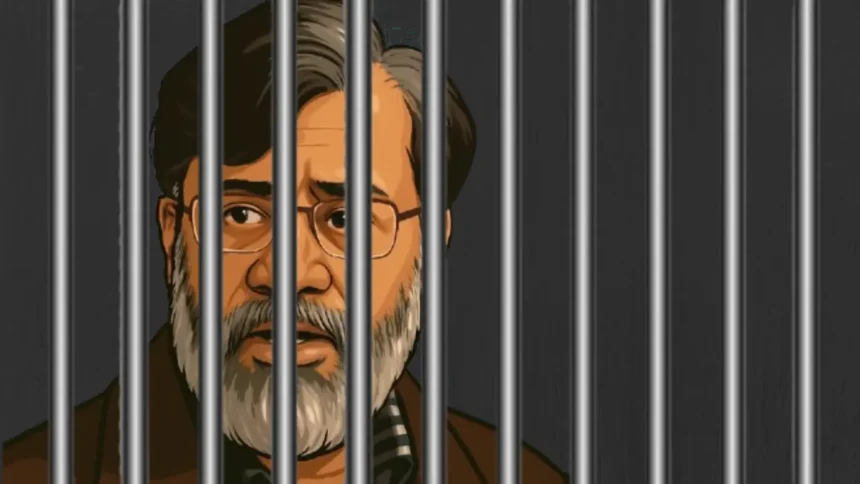Tahawwur Rana’s Extradition to India: A Global Twist in the 26/11 Terror Case
In a high-stakes move that has captured global attention, Tahawwur Hussain Rana, a key accused in the 2008 Mumbai terror attacks, has finally been extradited to India. This marks a significant development in the pursuit of justice for the horrific 26/11 attacks that left 166 people dead and hundreds injured.
But what does this extradition really mean? Will he face the death penalty, or has the U.S. placed restrictions? Let’s unpack the truth behind the headlines.
Who is Tahawwur Rana? A Deeper Look
Born in Pakistan in 1961, Rana later became a Canadian citizen and settled in Chicago, USA. He had earlier served as a doctor in the Pakistan Army, holding the rank of Captain. But his life took a darker turn when he became involved in terrorism through his long-time friend David Coleman Headley.
The two studied together in a military boarding school in Pakistan, and their friendship lasted through the years. Rana helped Headley in logistics and planning, offering financial and technical support for the Mumbai terror attack — one of the deadliest in India’s history.
In 2009, the FBI arrested Rana in the U.S. based on strong evidence linking him to the conspiracy behind the attacks.
The Charges India Has Brought Against Him
Rana has been brought to India to face serious charges under several sections of the Indian Penal Code and Unlawful Activities (Prevention) Act (UAPA), including:
| Section | Description |
|---|---|
| 120-B | Criminal conspiracy |
| 121 | Waging war against the Government of India |
| 121-A | Conspiracy to wage war |
| 302 | Murder |
| 468 & 471 | Forgery and use of forged documents |
| UAPA 18 & 20 | Terrorist activities |
These are grave offences, and some are punishable by death under Indian law.
Did the US Put a Stay on the Death Penalty?
Interestingly, the U.S. did not place any condition barring India from awarding the death sentence to Rana. This is a crucial development because in many past extraditions — like that of Abu Salem from Portugal in 2005 — India had to promise that the accused would not be executed.
However, no such assurance was required in Rana’s case. A senior NIA official confirmed that since the crimes he is charged with are also considered serious offences in the U.S., no objection was raised regarding the possible imposition of capital punishment.
This signals not only the gravity of the charges but also the strength of diplomatic cooperation between the two countries.
India’s Promise: No Torture, Full Security
While there was no restriction on sentencing, India has assured the U.S. that Rana will be treated according to international standards of human rights. The guarantees include:
- No torture
- Adequate security in prison
- Fair and lawful trial
These assurances help uphold India’s international image while also meeting extradition treaty obligations.
The Bigger Picture: Why This Matters
Rana’s extradition comes as a major win for India’s counter-terrorism efforts. For over a decade, victims and families of the 26/11 attacks have waited for justice. With Rana now on Indian soil, a direct link to Pakistan-based terror outfits may finally be put on trial in an Indian courtroom.
This also sends a powerful message to the global community — that terrorists will not find safe haven, no matter how far they run or how long it takes.
Will He Be Sentenced to Death?
That’s the burning question. Given the nature of the charges — including waging war against the country and mass murder — the death penalty is very much on the table.
However, it will ultimately depend on the findings during the trial, evidence presented, and judicial discretion.
What’s certain is that Rana’s trial will be closely watched — not just in India but globally.
Final Thoughts: A Turning Point for Indian Justice?
Tahawwur Rana’s extradition isn’t just another news headline — it’s a milestone moment in India’s fight against terrorism. With the death penalty still a possibility, this case could set a precedent for future international extraditions involving terrorism.
India has managed to bring home an accused terrorist without compromising on its legal rights — a rare and bold diplomatic win.
Most read: https://tnheadlines24.com/tahawwur-rana-is-back/
Want to Stay Updated?
Subscribe for more deep dives into international justice, national security, and high-stakes legal cases.
Don’t miss the upcoming coverage of Tahawwur Rana’s trial and India’s evolving strategy against cross-border terrorism.
Disclaimer: This article is based on publicly available information and media reports. TN HEADLINES24 is not responsible for the accuracy or authenticity of the content. The views expressed are for informational purposes only and do not represent any legal or official position.

